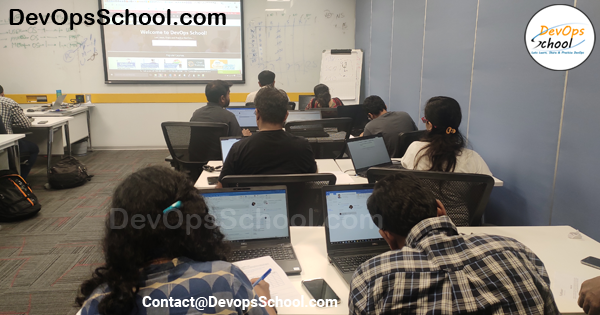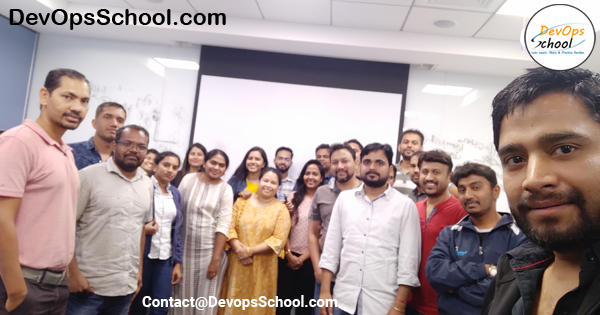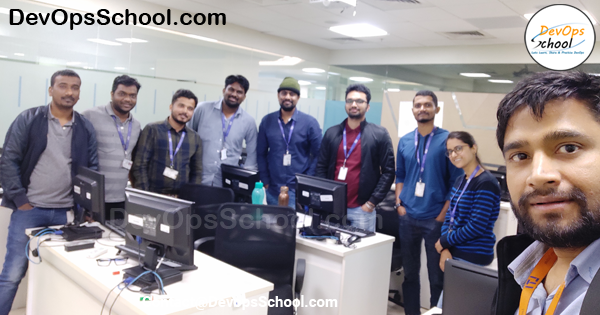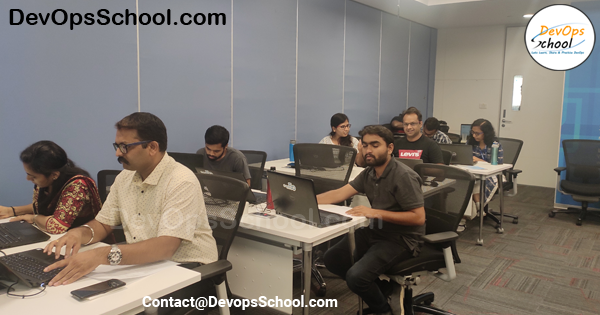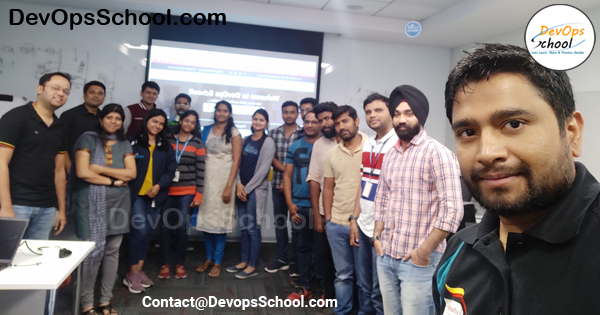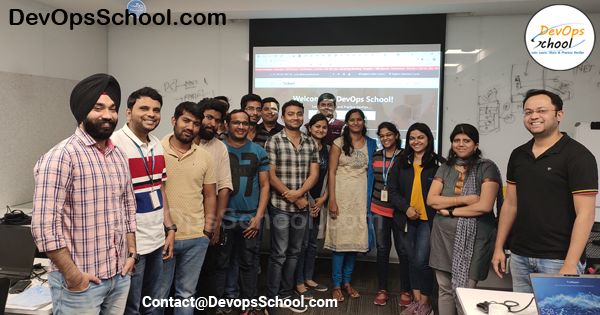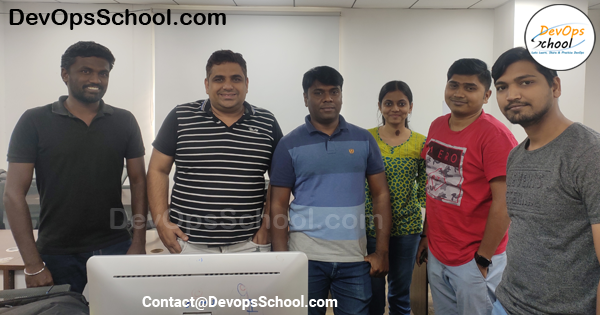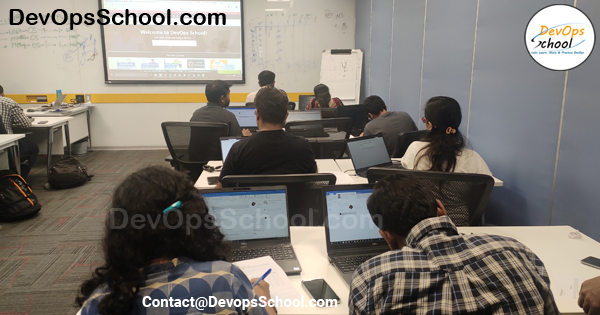1. About this Course and Certification
The GitOps Course and Certification offered by aiuniverse in collaboration with DevOpsSchool.com is designed to equip IT professionals with a deep understanding of the GitOps methodology. This course will help participants leverage Git to manage Kubernetes clusters, automate deployments, and achieve continuous delivery pipelines.
GitOps empowers organizations to adopt modern DevOps practices through declarative infrastructure and continuous deployment automation, offering streamlined and reliable operational management. This certification program provides hands-on labs, expert guidance, and a certification that is globally recognized, making it ideal for those who want to advance their DevOps and cloud-native careers.
2. What is GitOps?
GitOps is a paradigm that leverages Git as the single source of truth for both application and infrastructure code. It enables continuous delivery (CD) by automating the deployment of applications and the management of infrastructure in Kubernetes environments.
Key Tools Covered in This Course:
- Flux: A continuous delivery solution for Kubernetes that ensures clusters are in sync with configuration stored in Git.
- ArgoCD: A declarative, GitOps-based continuous delivery tool for Kubernetes that allows automation of Kubernetes deployment workflows.
- Helm: A Kubernetes package manager that simplifies application management.
- Terraform: Infrastructure as code tool for automating cloud infrastructure.
- Kustomize: A Kubernetes-native configuration management tool that allows declarative management of applications.
These tools form the backbone of modern GitOps workflows and are crucial for maintaining consistency and reliability in Kubernetes environments.
3. Why GitOps is Important
GitOps is gaining traction in the cloud-native ecosystem for several reasons:
- Version Control for Everything: By managing both application code and infrastructure as code (IaC) in Git, it provides an auditable, version-controlled system for the entire DevOps process.
- Automated Deployment Pipelines: GitOps tools enable continuous deployment, reducing manual intervention and human error.
- Improved Collaboration: DevOps teams can collaborate more effectively by treating infrastructure as code, where changes are tracked, peer-reviewed, and tested.
- Scalability: GitOps practices scale well with Kubernetes, making it an essential framework for organizations deploying large-scale cloud-native applications.
- Consistency and Reliability: GitOps ensures that the system’s actual state always matches the desired state defined in Git, thus reducing configuration drift and increasing operational consistency.
4. Course Features
- 5 Days of Live, Instructor-Led Training: Interactive, real-time guidance from industry experts.
- Practical Labs: Daily hands-on labs focused on real-world scenarios.
- GitOps Tools Mastery: Gain in-depth expertise in Flux, ArgoCD, Helm, and more.
- Capstone Project: Work on a comprehensive project to implement GitOps principles in a Kubernetes environment.
- 24/7 Support: Access to instructors and community forums for ongoing assistance.
- Lifetime Access: Recorded sessions and course materials accessible post-training.
- Certification: Earn a recognized certificate demonstrating your proficiency in GitOps.
5. Training Objectives
Participants will:
- Understand the fundamentals and advanced concepts of GitOps.
- Learn how to implement GitOps workflows with Kubernetes using tools like Flux and ArgoCD.
- Gain the ability to automate and manage Kubernetes infrastructure and deployments.
- Develop hands-on experience in configuring, managing, and troubleshooting GitOps-driven applications.
- Master continuous delivery practices using GitOps in both on-premise and cloud-based Kubernetes environments.
6. Target Audience
This course is ideal for:
- DevOps Engineers looking to optimize deployment and operational workflows with GitOps.
- System Administrators transitioning to Kubernetes-based infrastructure management.
- Cloud Architects aiming to leverage GitOps for continuous deployment and management.
- Kubernetes Enthusiasts who want to enhance their knowledge of cloud-native development.
- Software Developers interested in integrating their code management workflows with infrastructure automation.
7. Training Methodology
- Interactive Lectures: Covering both theoretical concepts and practical case studies.
- Hands-on Labs: Real-time practice on Kubernetes clusters with GitOps tools.
- Capstone Project: Final project to implement a complete GitOps-driven pipeline.
- Group Discussions: Interactive sessions to share best practices and use cases.
- Q&A Sessions: Dedicated time to resolve any doubts and queries.
8. Training Materials
Participants will be provided with:
- Detailed Course Syllabus: A breakdown of each module and its outcomes.
- Tool Documentation: Official tool documentation and best practices guides.
- GitOps Labs: A comprehensive lab manual to practice during and after the course.
- Recorded Sessions: Access to live class recordings for future reference.
- Case Studies: Real-world examples of GitOps in action, covering different industry sectors.
9. Evaluation
- Pre-assessment Quiz: To assess participants’ baseline understanding of GitOps and related technologies.
- Daily Lab Reviews: Interactive feedback sessions on each day’s lab assignments.
- Final Capstone Project Evaluation: The capstone project will be reviewed to assess practical understanding and implementation.
- Post-Training Assessment: A comprehensive test to evaluate the theoretical and practical knowledge gained during the course.
- Feedback Survey: Participants will be asked to provide feedback to ensure continuous improvement in training delivery.
10. Continuing Education
- Advanced GitOps Courses: Specialized modules focusing on specific tools or advanced implementations.
- Webinars and Tutorials: Stay updated with the latest trends and practices in GitOps through aiuniverse’s online resources.
- Professional Networking: Participants are encouraged to join the GitOps community for collaborative learning and knowledge sharing.
- Industry Certifications: After this course, you can pursue additional Kubernetes and cloud-native certifications.
11. Certifications Program
Upon completing the course, participants will be awarded the Certified GitOps Professional certificate, recognized by DevOpsSchool.com and aiuniverse. This certification verifies proficiency in GitOps methodologies, tools, and best practices, making it a valuable asset for any DevOps or cloud-native professional.
12. Level of the Training
This course is structured from fundamentals to advanced levels. Beginners will be introduced to GitOps principles and tools, while experienced professionals will dive deeper into advanced configurations and automation strategies.
13. Agenda – Day Wise
Day 1: Introduction to GitOps and Kubernetes
- Overview of GitOps: What is GitOps, and how does it work in Kubernetes environments?
- Setting Up Kubernetes: Hands-on cluster setup (Minikube, AKS, or EKS).
- Introduction to GitOps Tools: Basic introduction to Flux, ArgoCD, and Helm.
- Lab 1: Setting up a Kubernetes cluster and initializing basic GitOps configurations.
Day 2: Flux and GitOps Architecture
- Flux Overview: How Flux operates within Kubernetes, syncing cluster state with Git.
- Hands-on with Flux: Installing and configuring Flux in a Kubernetes environment.
- Declarative Kubernetes Management: Managing Kubernetes configurations using Flux.
- Lab 2: Configuring Flux for automated cluster synchronization with Git.
Day 3: ArgoCD and Continuous Delivery
- ArgoCD Overview: Understanding ArgoCD and its continuous delivery model.
- ArgoCD Setup: Hands-on installation and configuration of ArgoCD.
- Automated Application Deployment: Using ArgoCD to automate application deployment.
- Lab 3: Deploying an application using ArgoCD and ensuring continuous deployment.
Day 4: Helm and Terraform Integration
- Helm in GitOps: Leveraging Helm charts for Kubernetes package management.
- Terraform and GitOps: Managing cloud infrastructure using Terraform with GitOps workflows.
- Lab 4: Using Helm and Terraform for declarative infrastructure management.
Day 5: Capstone Project – Complete GitOps Pipeline
- Project Planning: Setting up a GitOps pipeline integrating Flux, ArgoCD, and Terraform.
- Hands-on Capstone: Participants will work on building a complete GitOps-driven Kubernetes environment.
- Project Evaluation: Instructors will review the project and provide feedback on best practices.
14. Lab Setup
To participate in this course, learners must have:
- A Kubernetes Cluster: Preferably Minikube, AKS, GKE, or EKS.
- GitHub/GitLab Account: For managing code repositories.
- CI/CD Pipeline: Access to Jenkins or GitLab CI for advanced labs.
- Operating System: Linux or macOS preferred for compatibility with tool installations.
15. Trainers
Rajesh Kumar from DevOpsSchool.com will be the lead instructor. With over 15 years of experience in DevOps and cloud technologies, Rajesh has trained thousands of professionals in Kubernetes, cloud-native development, and GitOps principles. His hands-on approach ensures that participants gain practical experience that directly translates into real-world skills.
For more details, visit: www.rajeshkumar.xyz.
16. FAQ
- What is GitOps? GitOps is a methodology that uses Git repositories as the single source of truth for managing infrastructure and application configurations in Kubernetes environments.
- What tools are covered in this course? The course covers Flux, ArgoCD, Helm, Terraform, and Kustomize as core tools for implementing GitOps workflows.
- Do I need prior Kubernetes knowledge? Basic Kubernetes knowledge is helpful but not mandatory. The course starts with the fundamentals before moving to advanced topics.
- Is this course suitable for beginners? Yes, the course is designed for both beginners and experienced professionals, offering content that spans from introductory to advanced levels.
- What kind of hands-on labs are included? The course includes labs on setting up GitOps with Flux, deploying applications using ArgoCD, managing configurations with Helm, and infrastructure management using Terraform.
- What certification will I receive? Upon successful completion, participants will earn the Certified GitOps Professional certificate, recognized by aiuniverse and DevOpsSchool.com.
- How is the course delivered? The course is delivered via live online classes with interactive sessions, hands-on labs, and a final capstone project.
- Can I access the course materials after completion? Yes, you will have lifetime access to the course materials, including recorded sessions, lab guides, and additional resources.
- Do you provide any post-training support? Yes, 24/7 support is available through forums and direct access to instructors for doubt resolution.
- How does GitOps differ from traditional DevOps? GitOps focuses on managing infrastructure and application deployments declaratively through Git, ensuring that all changes are tracked and auditable, whereas traditional DevOps may rely more on imperative processes and scripts.
Certification
This GitOps program will enable you to have a splended reward in the way of certificate. DevOpsSchool provides a completion certificate after successfully completing the course. Certification is a significant part of having a knowledge and skills on any especial course. It gives you an edge by showing your ability to hold it as it is not everybody’s cup of tea. It always plays an important role in any interview. The first impression from an interviewer after seeing your completion certificate is always being nice. Just because of this certificate the chances of clearing the interview increases at higher rate.
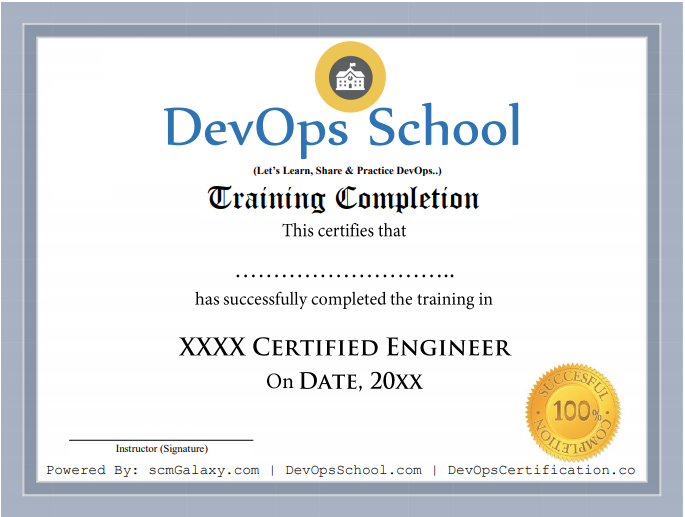
Reviews
By having an excellent journey with 8000+ participants from different countries we have got excellent reviews that helps us stand out of other institutes and being proud. We proudly can say we have helped so many individuals and working professionals to build their career. Here are some of the reviews that we have got from our participants who are happy by being a part of DevOpsSchool.
Videos
Projects
During this training you will get a real-time based project to work on, which will help you to implement your learnings and also it will boost your knowledge and skills. With important tools and platforms you will have real-world experience where we help you to visualize a real development environment, testing environment and production environments.
FAQs
1. Will I get technical support after completion of training?
- Yes, Its free of cost for life time. We will give you can access of our Google drive where you can drop you query and our trainers will respond you back.
2. Why should I learn online instead of offline?
- First this is the best option to keep you and your instructor safe in this dangerous pendamic. As well as the environment and benefits what you will get in offline classes same we will provide you in online classes. We will make your experience much better and comfortable than offline classes. That’s why we provide live and instructor -led online classes where you can interact your instructor to clear your doubts.
3. How long will it take to complete the course?
- It takes 3 to 4 months to fully complete the course because this training is conducted only in weekends i.e. Saturday and Sunday.
4. Will I get any placements after the training?
- Well we don’t provide any placements as of now but we can provide you a interview kit to help you out.
5. What are the pre-requisites to learn GitOps?
- Understanding of Kubernetes and Git-based workflows.
- Understanding of CI/CD processes
- A basic understanding of Git and Git repositories
6. Can a non technical person learn GitOps?
- Yes, but it will be very hard to learn because here the technical words and platforms will be used that he will be not aware of so in my recommendation you shouldn’t try but if still if you want to then you should be very concentrated and honest with you as you have to work hard.
7. Do you have online classes or offline classes?
- As of now online classes but he it is a group of people requirement then we can have discussion about offline classes.
8. Will I get the job after completing this course?
- Yes, you will be fully capable to perform any task given to you by your domain senior or manager. As you will be certified engineer who will have all the required skills and knowledge to perform any task.
9. Which kind of certification will DevOpsSchool provide?
- It’s a completion certificate. It will show that you have successfully completed the training and have the right skills and knowledge to perform the task assigned by your company.
10. How to start a GitOps career?
- You can go for self learning materials like Pdf, Slides, YouTube videos but there are one more option that is our SRE program. It’s our GitOps certified program that will teach you from basic to make you able to understand and perform a GitOps engineer tasks.
11. Who will be my trainer?
- As we have so many trainers its not possible to tell you quickly, as we have to go through their availability. But we can assure you you will get a best trainer as we have a group of best trainers who are very experienced and skillful trainers. They have 15+ IT working experience.
12. Can I get a demo session?
- No we don’t provide any demo class but instead of that we can provide you a class recordings so you can decide.
Our Gallery
